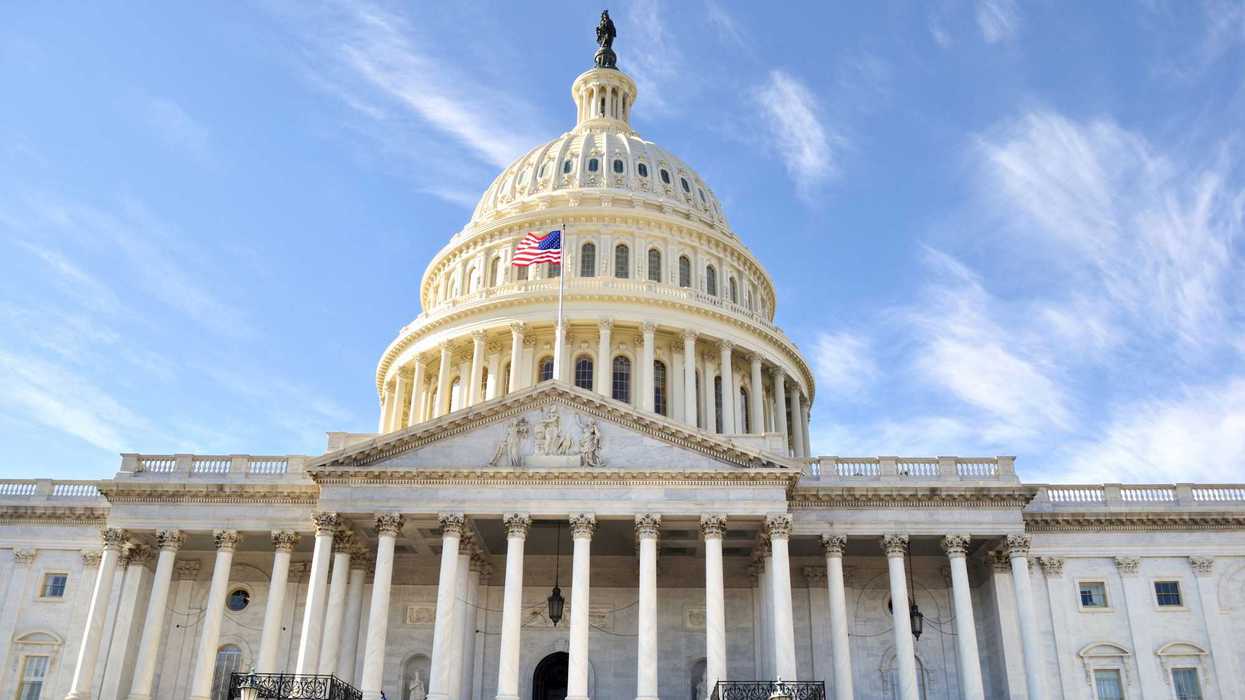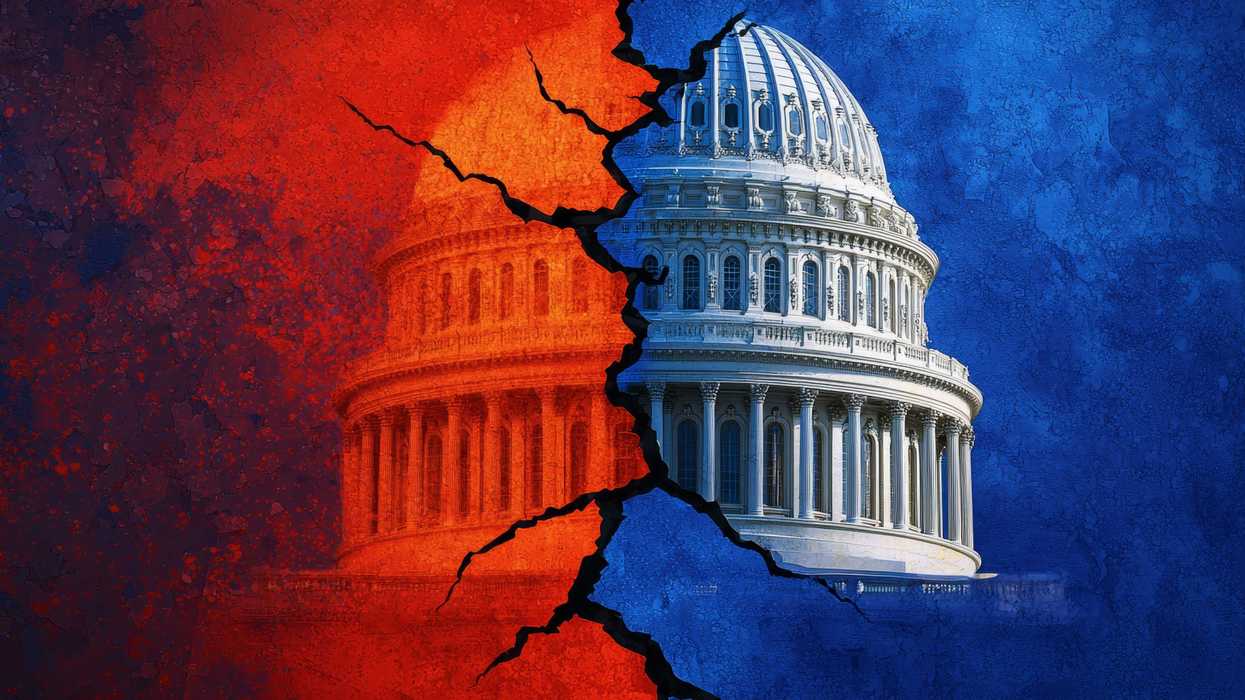This essay is part of a series by Lawyers Defending American Democracy explaining how many of the administration’s executive actions harm individuals throughout the country and demonstrate the link between these actions and their roots in the authoritarian blueprint, Project 2025.
The Impact of Executive Edicts On Immigration – At War With Ourselves
“Give me your tired, your poor, your huddled masses yearning to breathe free.” Those enduring words from the poem by Emma Lazarus were inscribed at the base of the Statue of Liberty about 160 years ago. Today, Donald Trump routinely delivers a very different message. As he sees it, nations around the world “are emptying their mental institutions and insane asylums,” and sending the residents to the United States. “They are also coming from Africa, the Congo in Africa, from prisons in Congo.” “They are coming in from Asia. They’re coming in from the Middle East.”
It is never clear who “they” are. Equally vaporous is information about the supposed mental institutions and insane asylums. These purposeful remarks are not intended to provide a basis for making informed policy decisions. Instead, they are meant to create a false sense that we are surrounded by enemies poised to harm us, that we urgently need to subdue.
While estimates differ slightly, approximately 11.7 million individuals now live in the United States after entering the country illegally or overstaying their visas - longstanding challenges that are best addressed through a bipartisan legislative solution, not blind adherence to a meaningless quota.
Why This Matters
Our country’s economy and our communities depend on a fair immigration policy
Addressing immigration challenges is far more complex than the President and those in his inner circle articulate. Many of these individuals are valued members of the communities in which they live and are performing jobs that no one else is willing to take.
Look, for example, at dairy farms and see who is mucking the stalls, cleaning the cows, and ensuring general sanitation. Walk down a city street where houses are being built and listen to the language of the builders. It’s often not English.
Likewise, walk into the steaming hot cotton gins that dot the Mississippi landscape and listen to the language the employees speak. Listen to the crews that pick up the trash in the neighborhood, and the line cooks talking to each other in some of your favorite urban restaurants.
We cannot replace the goal of comprehensive immigration reform with cruelty, excessive force, and ignoring basic rights
These examples do not mean that people who are here illegally or have overstayed their visas are somehow exempt from deportation, even if they are performing a valuable community service. But it does mean that deporting 11.7 million people or even a significant component cannot be rushed without creating economic disorder and, as we are now seeing, community upheaval.
It also means that the people being deported are entitled to due process and to dignified treatment.
That dignity has been nonexistent while White House aide Stephen Miller has been overseeing immigration affairs. Several years ago, Miller decided that a useful deterrent to illegal border crossings would be to separate babies from their mothers when mother and child were found to have entered the country illegally. That was an extraordinarily merciless blow, particularly to women who had just completed harrowing journeys through the Darien Gap to reach the United States in search of a better life for themselves and the child they brought with them. Once separated, many of those mothers never saw their child again.
This could happen to any of us
Fear, not dignity, is what Miller and this administration seek. That's why Rumeysa Ozturk, a 30-year-old female graduate student at Tufts University, was stopped and handcuffed by five ICE agents while walking to school and promptly shipped to a detention center in Louisiana.
That's why ICE agents smashed the windshield of an automobile and dragged a terrified woman and her children out of the car after she told the agents that she would not get out until her lawyer, whom she had contacted, arrived to help her interaction with the agents.
And that’s why ICE agents in Milford, Massachusetts, grabbed an 18-year-old high school student on the way to his volleyball team practice, and sent him 190 miles away to an ICE detention center in northern Vermont, without informing his parents or anyone else. The student has lived in Milford since he was five years old and is a valued member of the community.
Yes, we must solve the border and visa problems. Still, we cannot tolerate an environment where masked, unidentified, and armed government officials can snatch people off the streets, send them to far-away prisons without stating the reason why, and without providing any means for communicating with family or counsel.
Link Between These Actions And Project 2025
Project 2025, particularly Chapter 5, which is devoted to the Department of Homeland Security, is replete with efforts to upend the ideal of America depicted by the Statue of Liberty. It seeks sweeping changes that would close most doors into the United States, advocates that all “self-imposed limitations” on ICE be removed, including any policies that prohibit ICE from entering certain sensitive zones, and allowing the removal of “immigration violators” from “anywhere in the United States, without warrant where appropriate…”.
The draconian approach embedded in Chapter 5 should come as no surprise because the chapter was authored by Ken Cuccinelli. Cuccinelli was the acting Deputy Secretary of Homeland Security from 2019 to 2021 during the first Trump administration. He also served as Acting Director of the US Citizenship and Immigration Services until a federal judge ruled that his appointment to that position violated the Federal Vacancies Reform Act. Later, the Government Accountability Office also ruled that his appointment was illegal. Among other things, during his time in Virginia government service, Cuccinelli sought to force all workplace employees to speak English in the workplace. He has also sought to repeal birthright citizenship.
Our Joint Responsibility To Seek Change
We must solve this problem, but we can’t do it by creating fear, driving people into the shadows, and producing chaos throughout the Nation. The solution will take time, compassion, thoughtful energy, and careful planning. Thus far, the Trump administration has shown no interest in such an approach.
Collectively, we must demand that this nation’s immigrants be accorded the due process that our Constitution requires and that thousands of our predecessors have labored to create and preserve.
James F. McHugh is a retired Massachusetts Appeals Court Justice and a former board member of and current volunteer for Lawyers Defending American Democracy.



















 Mayor Ravi Bhalla. Photo courtesy of the City of Hoboken
Mayor Ravi Bhalla. Photo courtesy of the City of Hoboken Washington Street rain garden. Photo courtesy of the City of Hoboken
Washington Street rain garden. Photo courtesy of the City of Hoboken
